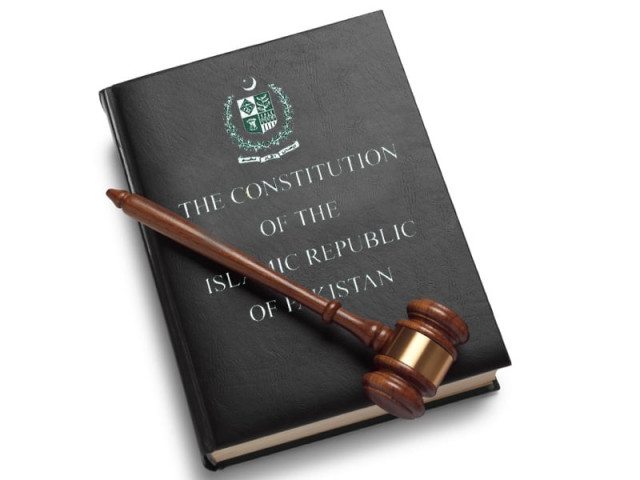Equality for all: ‘FATA jurisdiction issue requires constitutional amendment’
Larger PHC bench observes it cannot hear cases of tribal areas owing to bar by Article 247.

Larger PHC bench observes it cannot hear cases of tribal areas owing to bar by Article 247. PHOTO: FILE
The bench, headed by outgoing Chief Justice Mian Fasihul Mulk and comprising Justice Mazhar Alam Miankhel, Justice Yahya Afridi, Justice Qaiser Rashid Khan and Justice Malik Manzoor, announced the verdict that was reserved on April 4.
The court said the federal government needs to prepare a reference in light of findings reached by the court and send it to Parliament for possible amendments in Article 247 clause 7 of the Constitution that bars high courts and the Supreme Court from entertaining cases related to the Federally Administered Tribal Areas (Fata).
The Article and its clause state that “neither the Supreme Court nor a high court shall exercise any jurisdiction under the Constitution in relation to a tribal area, unless Majlis-e-Shoora (Parliament) by law otherwise provides.”
The court has said the article is inconsistent with basic human rights available to other citizens of the country and that residents of Fata are also citizens of Pakistan.
On March 11, the bench put forward seven basic questions before a panel of senior lawyers, asking them to assist the court to decide if it was in its jurisdiction to hear cases from Fata. The points included the court’s authority in hearing cases of employees of the federal and provincial governments working in the tribal areas as well as cases of the district management group and service commission officials and employees exclusively recruited for tribal areas.
Moreover, the bench had questioned whether the high court can entertain cases regarding illegal detention of tribal residents, appeals against decisions of the FATA Tribunal, including both civil and criminal cases, and how to proceed if the cause of an action is in the settled areas but the incident occurs in tribal areas.
Lawyers asked to aid the court in reaching a decision were of the opinion that the court can, to an extent, hear cases related to Fata. They, however, informed the court that a constitutional amendment would be needed to enhance its jurisdiction.
After the lawyers wrapped up their arguments, the court then asked the attorney general and additional chief secretary of Fata to assist it.
Additional Attorney General Atiq Shah told the court at the last hearing that Article 247 was part of the constitutions of 1956, 1962 and 1973, however, he said the court could advise Parliament on legislation regarding enhancing its jurisdiction to the tribal areas, adding if any loopholes remain in the legislation the court could make its own informed decision.
During court proceedings, the chief justice had asked Shah if he could present details of discussions on article 247 during the Parliament session in 1973 to which the additional attorney general said he would present all the records before the court.
PHC was hearing around 60 petitions in which petitioners wanted the Frontier Crimes Regulation abolished, extension of jurisdiction of high court to tribal areas and restraining members of the FATA Tribunal.
Published in The Express Tribune, April 8th, 2014.












COMMENTS
Comments are moderated and generally will be posted if they are on-topic and not abusive.
For more information, please see our Comments FAQ